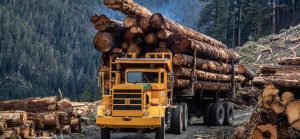
tla.ca
BRTISH COLUMBIA – Following two days of intense convention meetings, the Truck Loggers Association of BC has embarked on a process to find solutions to move the province’s forest sector forward, ensuring ongoing prosperity for workers and communities.
Delegates and members raised grave concerns regarding the provincial government’s recent decision to defer 2.6 million hectares of old growth and passing of legislation giving the NDP cabinet sweeping authority to redistribute tenures and unilaterally determine compensation rights of those affected. They also heard how the current path will make the sector “un-investible”.
“In the coming months, the TLA will be working collaboratively with those in the BC forest sector to seek possible solutions and find common ground that a majority of British Columbians can endorse as a reasonable path to success. It will also mean having the difficult conversations with those fundamentally opposed to the forest sector, if they choose to truly engage,” stated Bob Brash, Executive Director of the TLA. “The process will not challenge government’s broad objectives but rather find the means within those goalposts to move the sector forward.”
Brash noted the government’s policies were developed with no First Nations Forest Company involvement. An important aspect of modernization should strengthen the diversity of log and lumber flow in the forest sector through increased reallocation to First Nations and communities. Existing rights of contractors and others should be respected to allow stability and encourage reinvestment.
For a number of months, the TLA has called for meaningful collaboration among all key stakeholders, including First Nations, community groups, licensees, and non-government organizations. The Association has suggested there is an opportunity for a collective vision for forestry that addresses society’s expectations of BC’s forest-management while ensuring decision-making is informed with a true understanding of the issues and the consequences.


